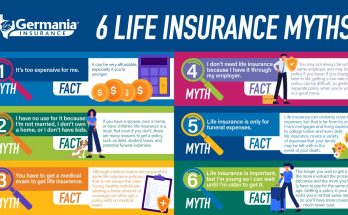Life insurance is often viewed as something to consider later in life—after marriage, after children, or once a mortgage is signed. But waiting until those milestones arrive can mean missing out on some of the most valuable advantages that early planning offers. The truth is, life insurance isn’t just about preparing for the worst; it’s about building a foundation for long-term financial security. When approached early, it becomes a strategic asset rather than a reactive measure, offering benefits that compound over time and support broader financial goals.
One of the most compelling reasons to start life insurance planning early is cost efficiency. Premiums are largely determined by age and health status, and younger individuals typically enjoy lower rates because they pose less risk to insurers. A healthy 25-year-old, for example, can lock in a term life policy at a fraction of the cost compared to someone who waits until their late 30s or 40s. These savings aren’t just marginal—they can add up to thousands of dollars over the life of the policy. By securing coverage early, individuals can take advantage of their youth and good health to build a safety net that remains affordable and reliable for decades.
Beyond affordability, early life insurance planning offers the advantage of financial predictability. Life is full of uncertainties, and having a policy in place provides a measure of control over the unknown. For young professionals just starting their careers, this kind of foresight can be empowering. It means that if something unexpected were to happen, their loved ones wouldn’t be burdened with financial hardship. Even if they don’t yet have dependents, many young adults carry student loans or other debts that could fall to family members in the event of their death. A life insurance policy ensures that those obligations are covered, preserving the financial stability of those left behind.
Another often-overlooked benefit of early planning is the opportunity to integrate life insurance into a broader financial strategy. Permanent life insurance policies, such as whole or universal life, come with a cash value component that grows over time. Starting one of these policies early allows that cash value to accumulate and potentially serve as a source of funds for future needs—whether it’s buying a home, funding a child’s education, or supplementing retirement income. While these policies require a higher initial investment than term life, their long-term benefits can be significant, especially when time is on your side. The earlier the policy is started, the more time the cash value has to grow, and the more flexibility it offers down the road.
Early life insurance planning also encourages a mindset of financial responsibility. It prompts individuals to think beyond immediate needs and consider the long-term implications of their choices. This kind of forward-thinking is invaluable, particularly in a world where financial literacy is more important than ever. By engaging with life insurance early, people begin to understand concepts like risk management, asset protection, and legacy planning. These lessons often spill over into other areas of financial life, leading to better budgeting, smarter investing, and more informed decision-making overall.
From a business perspective, early life insurance planning can be especially relevant for entrepreneurs and small business owners. Many startups are built on the shoulders of a few key individuals, and the sudden loss of one can have devastating consequences. Life insurance can provide the liquidity needed to keep operations running, cover outstanding debts, or facilitate a smooth ownership transition. For young founders, securing coverage early ensures that their business is protected from the outset, rather than scrambling to find solutions in the midst of crisis. It’s a proactive move that signals maturity and foresight, qualities that investors and partners often value highly.
There’s also a psychological benefit to early life insurance planning that shouldn’t be underestimated. Knowing that you’ve taken steps to protect your future and the people you care about brings a sense of peace and confidence. It allows you to focus on building your career, nurturing relationships, and pursuing personal goals without the nagging worry of “what if.” This emotional clarity can be particularly powerful during life’s transitional phases, such as moving to a new city, starting a family, or launching a business. With life insurance in place, those transitions feel less daunting and more manageable.
Of course, life insurance needs evolve over time, and early planning doesn’t mean locking into a single policy forever. It’s about establishing a foundation that can be adjusted as circumstances change. As income grows, families expand, and financial goals shift, coverage can be reviewed and updated to reflect new realities. But starting early means that those adjustments are made from a position of strength, rather than urgency. It’s the difference between steering the ship and reacting to the storm.
Ultimately, the benefits of early life insurance planning are both practical and philosophical. It’s a decision rooted in responsibility, but it also reflects optimism—a belief in the future and a commitment to protecting it. Whether you’re just entering the workforce or laying the groundwork for a business, life insurance can be a quiet but powerful ally. It doesn’t demand attention, but it offers assurance. And in a world where so much is uncertain, that kind of assurance is not just valuable—it’s transformative.



